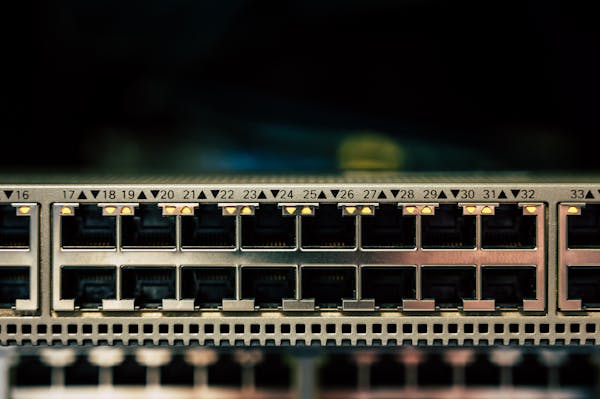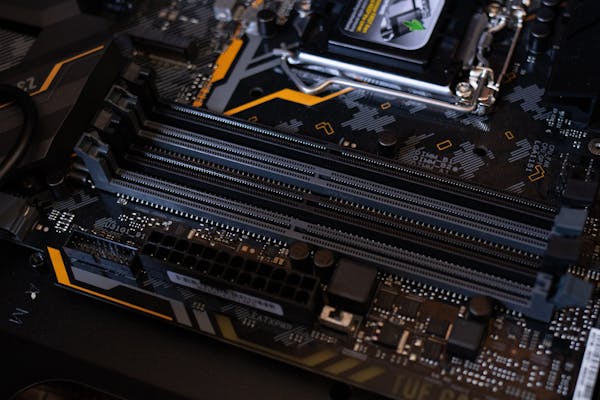
Delving into 4G Rotating Proxies
With the increasing need for online anonymity, mobile 4G proxies have gained prominence for secure and anonymous browsing.
What Are 4G Rotating Proxies?
These proxies employ mobile networks to rotate IP addresses to users. Unlike static proxies, they rotate IPs after set intervals, reducing detection risks.
Mechanism Behind 4G Rotating Proxies
Upon activation, the proxy server assigns a mobile IP. These IPs rotate based on time or requests, preventing consistent monitoring.
Benefits of Mobile 4G Proxies
- Increased Security: Dynamic IP rotation prevents tracking.
- Overcoming Location Barriers: Changing IPs enable viewing of geo-blocked sites.
- Minimized Blocking Risks: Frequent IP changes circumvent anti-bot measures.
Practical Implementations
- Web Scraping: Rotating IPs prevent scraping blocks.proxies support multiple profiles.
- Ad Verification: Changing IPs validate ad placements.
- o Consider}
When opting for a 4G rotating proxy, consider:
- Number of Available IPs: A larger pool reduces repetition.
- IP Change Intervals: Determine if the service has fixed durations.
- Regional Availability: Access to multiple regions aids in geo-testing.
Limitations to Be Aware Of
- Cost Implications: 4G proxies may be pricier compared to other types.
- Network Reliability: Mobile networks may affect consistency.
- Compliance Issues: Ensure usage avoids illicit activities.
Conclusion
4G rotating proxies offer unparalleled anonymity, making them invaluable in today’s digital age.
Understanding the Inner Workings of Dynamic 4G Proxy Servers
In the realm of internet privacy, mobile 4G proxies have gained prominence for maintaining user anonymity.
Defining 4G Rotating Proxies
4G rotating proxies employ cellular data connections to assign dynamic IP addresses to users. Unlike static proxies, they rotate IPs after set intervals, reducing detection risks.
How Do They Work?
Once initiated, a dynamic IP from a mobile network is provided. These IPs are switched periodically, preventing consistent monitoring.
Benefits of Mobile 4G Proxies
- Improved Privacy: Dynamic IP rotation prevents tracking.
- Accessing Region-Locked Content: Changing IPs allow access to restricted content.
- Minimized Blocking Risks: Frequent IP changes prevent bans.
Use Cases for Mobile Proxies
- Web Scraping: Rotating IPs ensure continuous data collection.
- Social Media Management: Dynamic proxies support multiple profiles.
- Ad Verification: Changing IPs monitor competitor strategies.
Factors to Consider
Before selecting a provider, consider:
- Diversity of IP Addresses: A larger pool reduces repetition.
- Switching Mechanisms: Determine if the service offers customizable intervals.
- Geographical Coverage: Access to multiple regions supports diverse tasks.
Considerations Before Use
- Pricing Structures: 4G proxies can impact budgets compared to other types.
- Performance Issues: Mobile networks may affect consistency.
- Regulatory Concerns: Ensure usage aligns with laws.
Final Thoughts
4G rotating proxies provide dynamic IP solutions, making them invaluable in modern internet usage.
The evolving internet ecosystem, staying anonymous and bypassing restrictions has become more necessary than ever. Affiliate marketers, agencies, and SEOs often rely on proxies to change their IPs. Among these, 4G LTE rotating proxy servers have become a top-tier option.
But how do they compare to other proxy types like residential proxies? Let’s explore the differences.
== What is a 4G Rotating Proxy?
A LTE rotating IP proxy is a proxy that routes internet traffic through a real mobile device. These proxies rotate IPs at preset intervals or upon request, emulating human behavior and reducing the chance of bans or blocks.
== Main Proxy Types
Let’s outline the key proxy types before comparing:
1. **Datacenter Proxies**
– High-speed and cheap, but easily flagged.
2. **Residential Proxies**
– Use IPs assigned to real homes. More reliable, but slower and costlier.
3. **4G Mobile Proxies**
– Use real SIMs on LTE networks. Best for scraping, bots, social media.
4. **SOCKS5 Proxies**
– Protocol-based, flexible, used for various apps, not just HTTP.
== Comparison Table
| Feature | 4G Rotating Proxies | Datacenter Proxies | Residential Proxies | SOCKS5 Proxies |
|————————|———————|———————|———————|—————-|
| IP Source | Mobile Network (SIM)| Data Centers | Home IPs | Varies |
| Rotation | Yes (Frequent) | Sometimes | Optional | Manual |
| Ban Resistance | High | Low | Medium | Depends |
| Speed | Medium | High | Low-Medium | High |
| Price | High | Low | Medium | Low-Medium |
| Target Use | Social, Ads, Bots | General Scraping | E-commerce, Research| General |
| Block Detection | Low | High | Medium | Medium |
== Technical Advantages of 4G Rotating Proxies
What gives mobile proxies their edge?
– **Real Device Trust**: Websites trust mobile IPs more than others due to carrier NAT and wide user pools.
– **Shared Reputation**: IPs are shared across many users, making banning a single user risky.
– **Geo-targeted Mobile Carriers**: Rotate between networks in real U.S. cities or countries.
– **Dynamic Rotation**: Can rotate every few minutes or after each request.
– **Bypasses Captchas**: Mobile IPs are less likely to trigger captchas or challenge verifications.
== Where 4G Proxies Win
Here’s the truth— if you’re running multiple Instagram accounts, nothing works better than a solid 4G proxy.
– Craigslist blocks data center IPs.
– Web scraping? You’ll trigger fewer blocks.
– Ads management across banned zones? Done.
== Where They Fall Short
– **Cost**: They’re premium priced.
– **Speed**: Slower than static datacenter options.
– **Limited Threads**: Some providers limit concurrent usage.
== SOCKS5 vs 4G: Protocol vs Behavior
SOCKS5 proxies are great tools. But they don’t have native rotation.

| Attribute | 4G Proxy | SOCKS5 Proxy |
|———————|——————–|——————–|
| Protocol Type | HTTP/HTTPS | SOCKS5 (All apps) |
| Rotation | Yes | Manual |
| IP Trust Level | Very High | Medium |
| Use Cases | Social, Ads, Bots | Torrenting, Apps |
== Use Cases Side-by-Side
**4G Rotating Proxies:**
– Social Media Management
– Mobile Ad Verification
– SEO Scraping
– Sneaker Bots / E-com Testing
– Marketplace Automation
**Datacenter Proxies:**
– High-volume scraping (non-sensitive)
– Speed-demanding tasks
– Price-conscious campaigns
**Residential Proxies:**
– E-com price intelligence
– Research tools
– CAPTCHA-heavy targets
**SOCKS5 Proxies:**
– Application-level traffic routing
– Anonymity over torrents
– Bypassing firewalls
== How to Choose the Right One?
Each proxy has a time and place. Here’s how to choose:
– Need speed? Go datacenter.
– Need trust and stealth? Go 4G mobile.
– Need app-level routing? Go SOCKS5.
– Need wide IP pools without rotation? Try residential.
== Future of 4G Rotating Proxies
With AI detection systems growing smarter, only mobile proxies are keeping up. We’re seeing:
– 5G proxy rollouts in testing
– Smarter rotation algorithms
– Integration with automation platforms like Jarvee, NextPost, Puppeteer
== Final Verdict
If you’re serious about anonymity, 4G rotating proxies are your best bet. For any campaign that’s sensitive, black-hat, or gray area, it’s worth the investment.
== Spintax Conclusion
So, whether you’re an agency scaling campaigns, investing in the right proxy is not optional anymore.
4G rotating proxies may cost more, but the ROI makes up for it.
https://www.fortinet.com/resources/cyberglossary/proxy-server
https://en.wikipedia.org/wiki/Proxy_server
https://support.microsoft.com/en-us/windows/use-a-proxy-server-in-windows-03096c53-0554-4ffe-b6ab-8b1deee8dae1
https://www.reddit.com/r/explainlikeimfive/comments/1dfgepb/eli5_what_is_a_proxy_server_and_why_would_i_as_an/
https://surfshark.com/blog/proxy-server
Check more https://popl.co (Proxy Seller Coupon Code Discounts)